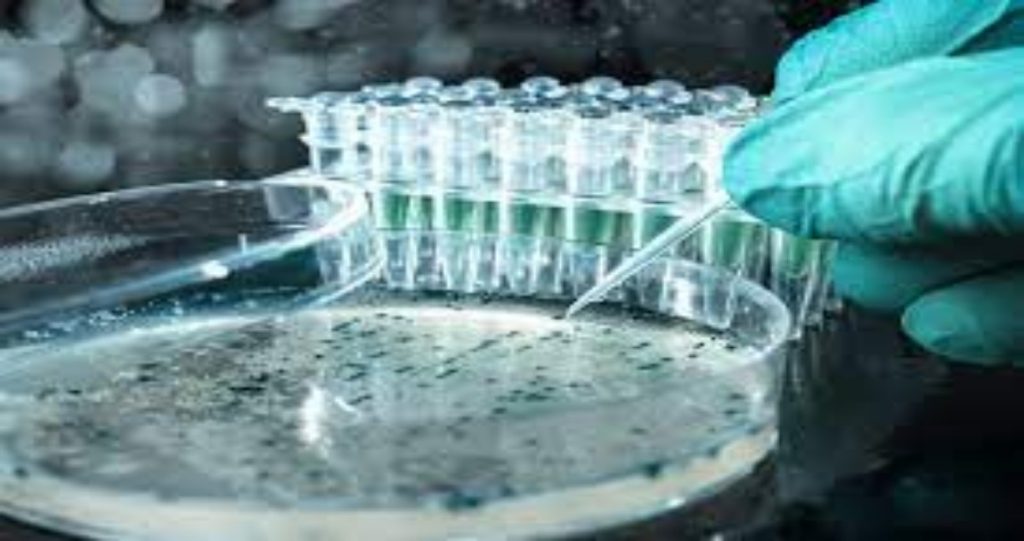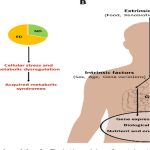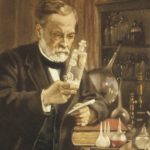Biotechnology is technology that utilizes biological systems, living organisms or parts of this to develop or create different products.
Brewing and baking bread are examples of processes that fall within the concept of biotechnology (use of yeast (= living organism) to produce the desired product). Such traditional processes usually utilize the living organisms in their natural form (or further developed by breeding), while the more modern form of biotechnology will generally involve a more advanced modification of the biological system or organism.
With the development of genetic engineering in the 1970s, research in biotechnology (and other related areas such as medicine, biology etc.) developed rapidly because of the new possibility to make changes in the organisms’ genetic material (DNA).
Today, biotechnology covers many different disciplines (eg. genetics, biochemistry, molecular biology, etc.). New technologies and products are developed every year within the areas of eg. medicine (development of new medicines and therapies), agriculture (development of genetically modified plants, biofuels, biological treatment) or industrial biotechnology (production of chemicals, paper, textiles and food).
At its simplest, biotechnology is technology based on biology – biotechnology harnesses cellular and biomolecular processes to develop technologies and products that help improve our lives and the health of our planet. We have used the biological processes of microorganisms for more than 6,000 years to make useful food products, such as bread and cheese, and to preserve dairy products.

HEAL THE WORLD
Biotech is helping to heal the world by harnessing nature’s own toolbox and using our own genetic makeup to heal and guide lines of research by:
· Reducing rates of infectious disease;
· Saving millions of children’s lives;
· Changing the odds of serious, life-threatening conditions affecting millions around the world;
· Tailoring treatments to individuals to minimize health risks and side effects;
· Creating more precise tools for disease detection; and
· Combating serious illnesses and everyday threats confronting the developing world.
FUEL THE WORLD
Biotech uses biological processes such as fermentation and harnesses biocatalysts such as enzymes, yeast, and other microbes to become microscopic manufacturing plants. Biotech is helping to fuel the world by:
· Streamlining the steps in chemical manufacturing processes by 80% or more;
· Lowering the temperature for cleaning clothes and potentially saving $4.1 billion annually;
· Improving manufacturing process efficiency to save 50% or more on operating costs;
· Reducing use of and reliance on petrochemicals;
· Using biofuels to cut greenhouse gas emissions by 52% or more;
· Decreasing water usage and waste generation; and
· Tapping into the full potential of traditional biomass waste products.


FEED THE WORLD
Biotech improves crop insect resistance, enhances crop herbicide tolerance and facilitates the use of more environmentally sustainable farming practices. Biotech is helping to feed the world by:
· Generating higher crop yields with fewer inputs;
· Lowering volumes of agricultural chemicals required by crops-limiting the run-off of these products into the environment;
· Using biotech crops that need fewer applications of pesticides and that allow farmers to reduce tilling farmland;
· Developing crops with enhanced nutrition profiles that solve vitamin and nutrient deficiencies;
· Producing foods free of allergens and toxins such as mycotoxin; and
· Improving food and crop oil content to help improve cardiovascular health.
Modern biotechnology provides breakthrough products and technologies to combat debilitating and rare diseases, reduce our environmental footprint, feed the hungry, use less and cleaner energy, and have safer, cleaner and more efficient industrial manufacturing processes.
Currently, there are more than 250 biotechnology health care products and vaccines available to patients, many for previously untreatable diseases. More than 13.3 million farmers around the world use agricultural biotechnology to increase yields, prevent damage from insects and pests and reduce farming’s impact on the environment. And more than 50 biorefineries are being built across North America to test and refine technologies to produce biofuels and chemicals from renewable biomass, which can help reduce greenhouse gas emissions.



Comments are closed